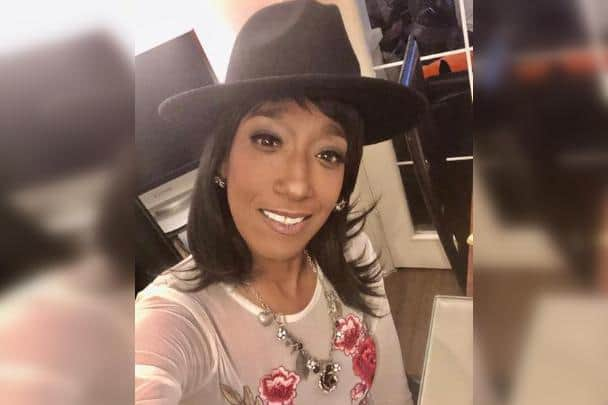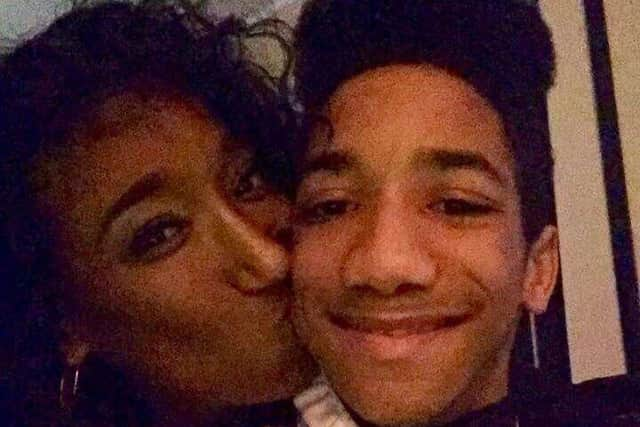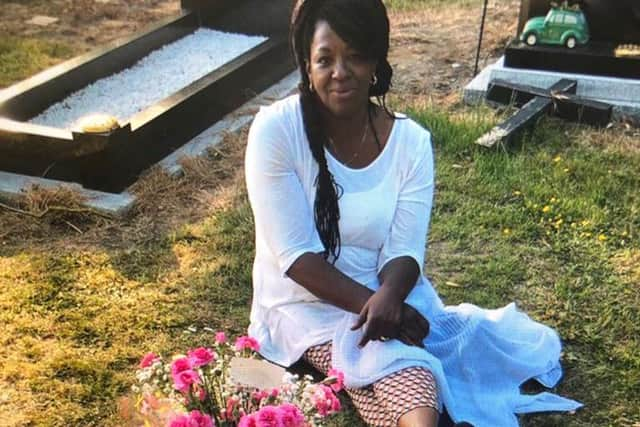Sheffield singer’s husband ‘told her to stop taking prescribed medication’ before tragic death
and live on Freeview channel 276
At an inquest in Sheffield on March 10, Assistant Coroner Tanyka Rawden heard that soul singer Delsena Walrond died aged 39 on May 28, 2019, after suffering a thorasic aortic dissection – where the main artery from the heart ruptures.
The court heard that Mrs Walrond, of Oxley Close, Stocksbridge, had been on medication since 2001 and had suffered a previous aortic dissection in 2013, which had led to her needing open heart surgery and meant her high blood pressure – or hypertension – had to be managed by tablets.
Advertisement
Hide AdAdvertisement
Hide AdDoctors explained that this was linked to her suffering from Lupus – an incurable disease where the immune system mistakenly attacks otherwise healthy parts of the body, as well as chronic kidney disease.


However, Mrs Walrond’s mother Dee Ramsay told the court that in the eleven months prior to her death, Delsena had stopped taking her prescribed blood pressure medication in favour of herbal remedies, under the instructions of a man she had met in February 2017 and married that July.
Mrs Ramsay told the coroner that she believed that it was the ‘controlling’ actions of her husband that were to blame for her daughter’s death.
She said: "Delsena was an absolute gem. She was loved by everybody. Losing her has been horrendous for me and her son Nile.
Advertisement
Hide AdAdvertisement
Hide Ad“I know I am not here to blame anybody, but from what I saw Delsena suddenly started to get into this situation after she met and married this man.


"She wrote in her diary that he began to encourage her and convince her that he could cure her Lupus.
"He began to control what she took and what she didn’t take, what she did and what she couldn’t do.
"He convinced my daughter that he could rid her of her conditions and he convinced her that the hospital that had been taking care of her for so long was trying to kill her.
Advertisement
Hide AdAdvertisement
Hide Ad"My daughter bowed down to him because she new she had got herself into this situation where he was controlling her treatment.


"I have a recording of him telling her that [conventional] medication would not have got her where she was. He made her believe he was saving her.
"Between 2001 and 2016 she was fine with her medication. Then after that when she met him suddenly she was not.
"Her husband did not even come to her funeral. After Delsena died he phoned me and told me to come and pick all Nile’s things up from their house or he would throw them on a skip."
Advertisement
Hide AdAdvertisement
Hide AdIn a statement read out at the inquest, Delsena’s GP said that in November 2017 Delsena had said that she was considering stopping taking her prescribed medication and using alternative herbal remedies instead.
The GP said at the time that they agreed she would carry on with her medication as well as trying alternatives.
Reading out the GP’s statement at the inquest, Mrs Rawden said: “On occasions when [Delsena] attended [Sheffield Medical Centre] with her partner he would pass negative comments about modern medicine and how it could have side affects that caused problems and said herbal medicine was much better.
"[Delsena] had the capacity to make her own decisions and I said to her partner that we did not need him to push his agenda.”
Advertisement
Hide AdAdvertisement
Hide AdThe GP said that after this happened three times Delsena’s partner stopped attending, or did not speak when he did accompany his wife.
The GP then told the Court that Delsena admitted to her (the GP) in May 2018 while in hospital that she had not been taking her medication, but said that there was nothing to suggest she had not taken this decision of her own accord.
Mr Braidley, a consultant cardiac surgeon with Sheffield Teaching Hospitals NHS Foundation Trust, told the inquest: “If indeed Delsena hadn’t been taking her tablets designed to lower her blood pressure this may have contributed to the growth of her descending aorta [the process which caused the aortic dissection].”
However, a toxicologist found that on the day of Delsena’s death the prescribed blood pressure medication was in her system, and that there was not a sufficient trace of herbal medicine to prove she had been using that.
Advertisement
Hide AdAdvertisement
Hide AdToxicologist Dr Stephanie Martin explained that this proved that she had taken the medication on the day of, or the days prior to her death. But it did not prove whether she had been taking it in the eleven months beforehand.
Mr Braidley told the inquest that Mrs Walrond was taken by ambulance to the emergency department of the Northern General Hospital at 9.22am on May 28, 2019, with a complaint of severe abdominal pain which was also affecting her lower back.
He said that she was seen to quickly, and underwent a CT scan and her blood pressure was monitored carefully. She was at first treated in the vascular unit and then transferred to the cardiac unit when that was deemed more appropriate.
However due to the complexity of the scan the aortic dissection was not diagnosed until around later that day.
Advertisement
Hide AdAdvertisement
Hide AdMr Braidley explained: “There were no clinical triggers to say that a problem was developing until 6pm.
"Dr Neil Cartwright [the consultant cardiac surgeon on duty] reviewed the scans and was suspicious that all was not as uncomplicated as the scan review had initially said.”
Mr Braidly told the inquest that Dr Cartwright then discussed these findings with a consultant radiologist and they identified some fluid indicating thorasic aortic dissection.
It was established that Delsena would need surgery, however the fact she had needed open heart surgery in 2013 for another aortic dissection meant that it was very difficult to operate.
Advertisement
Hide AdAdvertisement
Hide AdIt was determined that Delsena would need to be transferred to Liverpool – one of two specialists in this kind of surgery in the country – however before this referral could take place Delsena went into cardiac arrest and died.
She was pronounced dead at 6.30pm after attempts to resuscitate her failed.
At the inquest Mrs Rawden questioned whether delays at the hospital – including the failure to put the first CT scan onto a system where clinicians could see it and the unnecessary referral to the vascular unit – could have affected the outcome of Delsena’s case.
Mr Braidley said: “We didn’t have to get the vascular team involved. We probably could have saved a bit of time there.
Advertisement
Hide AdAdvertisement
Hide Ad"But I have though and reflected on whether this would have made much difference and I think inevitably it would not.
"The aorta would have ruptured at 6pm irrespective of where or how Delsena was being treated.”
Asistant Coroner Tanyka Rawden concluded that Delsena Walrond died from a chronic thorasic aortic dissection, and that this was linked to her lupus, hypertension and chronic kidney disease.
She found that Delsena’s death came as a result of natural causes.
Advertisement
Hide AdAdvertisement
Hide AdThe inquest did not determine whether Delsena had been neglecting to take her medication, nor whether, if she had, this decision had been influenced by her husband. A police investigation also did not reach this conclusion.
Delsena’s husband was invited to attend the inquest and give a statement but he declined.
Mrs Rawden said to Mrs Ramsay: “I am so sorry that Delsena is not with you anymore. She seemed like such a beautiful and vibrant woman. I cannot imagine how much you must miss her.
"I know that this inquest process has not given you the answers you were looking for and there are perhaps a lot of answers that you will never have. I know that must be really hard as well.
"I am truly sorry we can’t give you all the answers you need.”